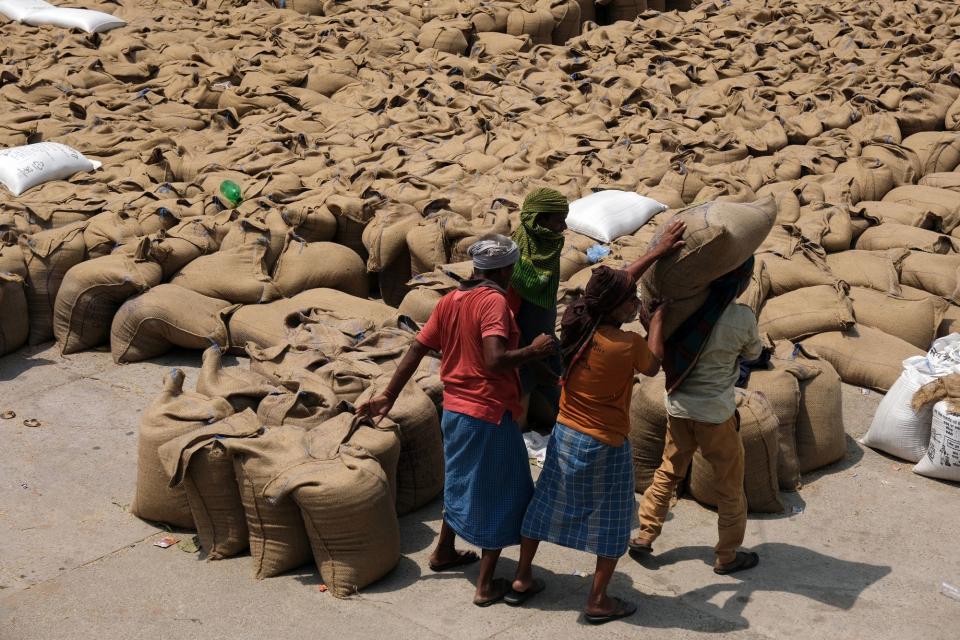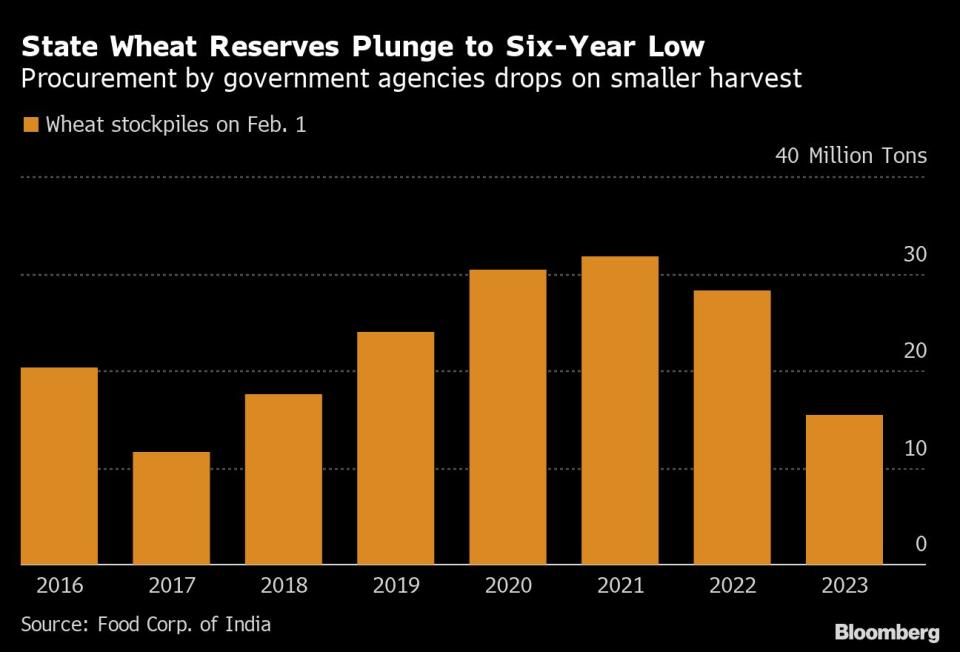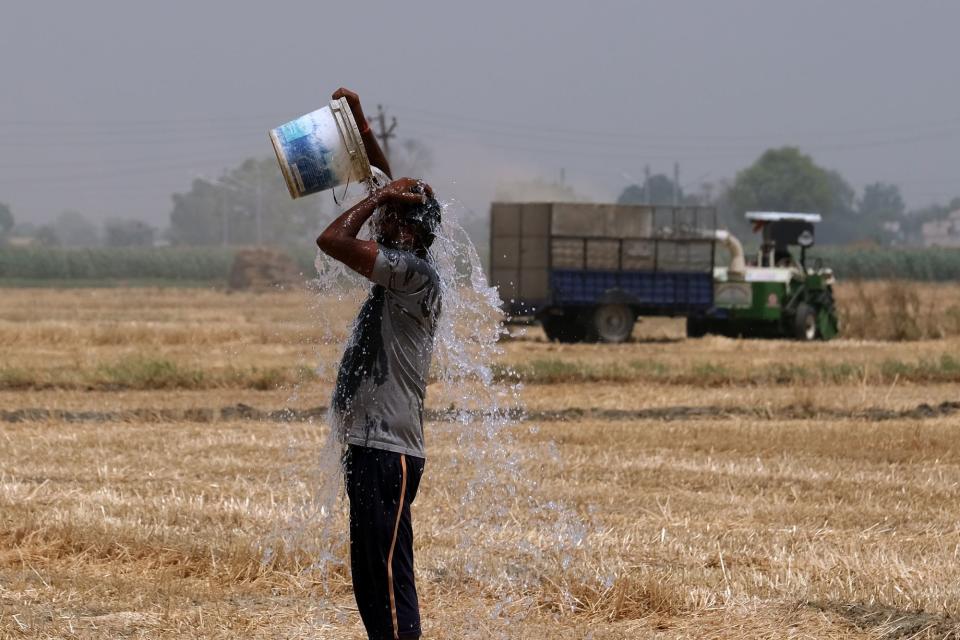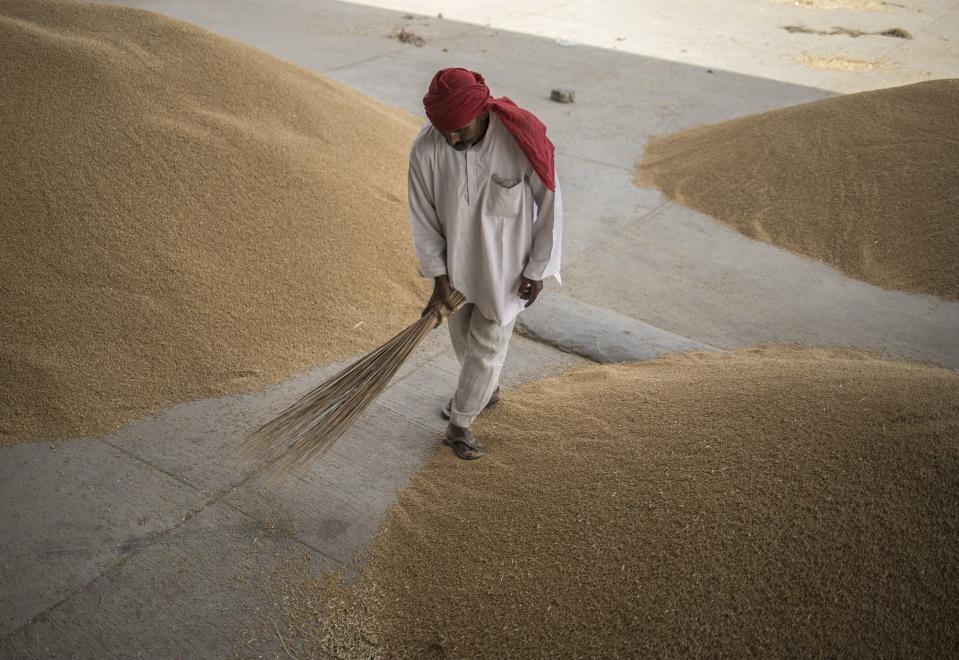India’s Modi Likely to Retain Wheat Export Curbs as Polls Loom
- Oops!Something went wrong.Please try again later.
(Bloomberg) -- Keeping the cost of staple foods in check to protect the poor will be a top priority for Indian Prime Minister Narendra Modi as he plans for polls in several states this year and the all-important general election in 2024.
Most Read from Bloomberg
Stocks Sink as Fed Officials Embrace Bigger Hikes: Markets Wrap
Tesla Recalls More Than 362,000 Cars Due to Self-Driving Crash Risk
Tesla Fires Dozens After Workers Announce Union Campaign, Complaint Says
That means the government will likely extend export curbs for wheat, which is an essential part of the diet and key to food security for many of the country’s 1.4 billion people. State reserves of wheat used to supply the food program for the poor have shrunk to the smallest for this time of year since 2017, which shows the premier has good reason to take no chances on the restrictions.
An extension of the export curbs would probably bolster the global wheat market, where supplies are tight because of dry weather in US growing areas and a drop in Ukrainian supplies after Russia’s invasion almost a year ago.
While the farm ministry and some traders expect the country’s wheat production to reach a record 112 million tons this year, it’s still too early to say a crop of that size is in the bag. Output is at risk if temperatures in the key northern growing regions climb unexpectedly through to the end of March, said Rajnikant Rai, divisional chief executive of ITC Agri Business, part of ITC Ltd., a cookie and flour maker and one of the top wheat buyers.
“The crop is looking good as of now but we have to watch the temperatures,” Rai said. “A removal of the export ban is unlikely because of low stockpiles,” he added, saying that any move to relax the curbs now would boost the domestic market and make it difficult for the government to buy the grain at minimum support prices to replenish supplies for its welfare program.
India halted exports in May last year, a shock move that stoked fears of global food shortages and inflation amid the war in Ukraine. The decision was taken after record-breaking heat parched fields and slashed output, prompting fears over local supplies. Similar worries also spurred the government to slap curbs on rice and sugar exports. There is always a risk that heat waves may happen again as the global climate changes and the weather becomes more extreme.
Inflation Fears
Though food inflation didn’t affect the ruling party’s electoral prospects in assembly elections in some states including Uttar Pradesh and Gujarat, it doesn’t want to take any chances ahead of future polls and the general election next year as higher food prices always hurt consumers, said Poornima Varma, an assistant professor at the Indian Institute of Management in Ahmedabad.
Grain prices in India have not come down as much as expected, with wheat costs dropping only marginally, and the government wants to have sufficient domestic inventories to ensure food security for the poor, Varma said.
While prospects for the winter-sown crops have improved, especially for wheat and oilseeds, risks from adverse weather events remain, according to the Reserve Bank of India. If temperatures rise between now and the middle of March during a crucial period for crop growth, that may hurt yields.
Consumer price inflation is still very much an issue in India. It accelerated again in January after moderating in the fourth quarter. Core inflation, which strips out food and fuel costs, stayed above 6% for the 16th month in a row. That underscores the government’s challenge on prices before the elections.
Most Read from Bloomberg Businessweek
Putin’s War Is Crippling Ukraine’s Economy—and Russia’s, Too
Aiming to Be the Next Emirates, Air India Makes Record Jet Buy
©2023 Bloomberg L.P.





